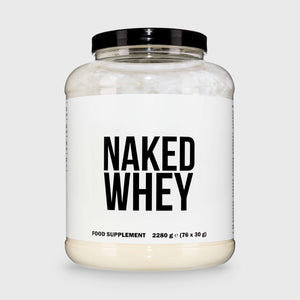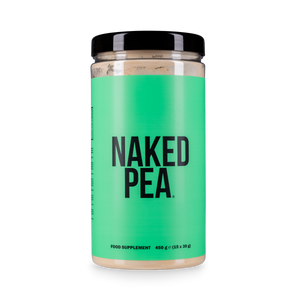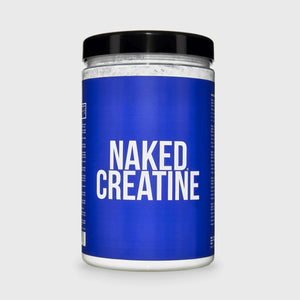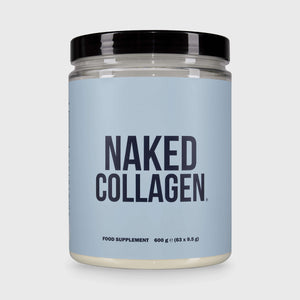
Zinc is one of the most important nutrients for the human body. But simply ensuring you get enough zinc in your diet does not mean you’re actually absorbing it. This article will explain why zinc absorption is more important than you think, and ways to ensure you’re optimizing its absorption.
**Disclaimer: This content is for informational purposes only and does not constitute medical advice. Always consult a healthcare provider before starting any supplement, especially if you have a health condition or take medications.
Why Zinc Absorption is More Important Than You Think

Zinc is a trace mineral that is integral to human health. The body needs zinc for a wide range of processes including immune function, wound healing, hormone regulation, enzyme activity, and even for your sense of taste and smell. Zinc deficiency can show up in various ways such as frequent colds, poor skin repair, or lingering fatigue.
Simply taking a zinc supplement isn’t always enough to increase your body’s zinc levels. How effectively zinc is absorbed in the body is most important. In nutrition science, this is called bioavailability, which refers to how much of a nutrient you actually absorb and use.
Some forms of zinc supplements pass through the digestive system with minimal uptake by the body, while other forms are more readily absorbed. Zinc supplements that aren’t absorbed well can leave consumers frustrated, deficient, and even left with some digestive side effects.
According to the NIH Office of Dietary Supplements, zinc plays a pivotal role in hundreds of enzymatic reactions in the body. However, zinc is only beneficial when the body can actually access and absorb it (1). This is why understanding absorption—and choosing a form of zinc that your body can use effectively—is more important than most people realize.
How Zinc is Absorbed in the Body

Zinc is primarily absorbed in the small intestine. There are three sections of the small intestine starting with the duodenum, followed by the jejunum and the ileum. Zinc is mainly absorbed in the jejunum and the ileum.
Zinc is absorbed via a couple different modes of transport. For one, zinc is involved in a process called passive diffusion, a process in which zinc is absorbed through cell membranes into the bloodstream.
Additionally, some zinc is absorbed through a process called active transport, which involves the use of specialized proteins that help to move zinc across the intestinal wall.
Once zinc is absorbed, it’s taken up by the bloodstream and shuttled around to the different tissues where it’s needed.
The human body does a phenomenal job of tightly regulating zinc. If the body has low levels of zinc, the rate of absorption increases to take in more zinc. If zinc levels are too high, absorption rate slows down and some extra zinc may be excreted. This tight regulation system helps to prevent zinc deficiency and toxicity.
There are various factors that impact how efficiently the body absorbs zinc. Age is one of the main factors that affects zinc absorption. Older adults often produce less stomach acid which can impair uptake.
Individuals with impaired digestive function from celiac disease or IBS for example can have impaired zinc absorption. Even acute illnesses can impact how efficiently the body can absorb, use, and conserve zinc. Zinc relies on gut health to be absorbed and any disruption to digestive health whether from low stomach acid, gut inflammation, or medications can impact uptake. l
Therefore, absorption rates can vary significantly from person to person.
If you’re curious about how digestive wellness shapes nutrient absorption more broadly, check out our guide on gut health and micronutrient absorption.
Which Types of Zinc Supplements Are Best Absorbed?

Absorption doesn’t just vary between individuals—it also differs significantly among zinc supplement forms. This next section will outline some of the most highly bioavailable forms of zinc.
Highly Bioavailable Forms of Zinc
There are four main types of zinc that are considered the most highly bioavailable forms. Zinc picolinate is frequently considered the most efficiently absorbed form. Studies show that zinc picolinate may cross the intestinal wall and get absorbed into the bloodstream more effectively than others.
Zinc citrate is another highly bioavailable form that is gentle on the stomach and well absorbed.
Zinc biglycinate is considered a chelated form of zinc, which means that zinc is bound to amino acids. Chelated forms of many nutrients have been touted for improved tolerance and absorption (2).
If you have ever taken a zinc lozenge when you’re sick, you’ve probably taken zinc acetate. This is a common form a zinc in many cold supplements with good absorption.
Less Effective or Irritating Forms
If you’re looking for a zinc supplement, keep an eye out for these forms which are not absorbed as well. Zinc oxide, although widely available and inexpensive, is poorly absorbed in the gut. Zinc sulfate is moderately absorbed, but it often results in nausea or digestive upset, so it’s best to stay away.
Zinc gluconate is another common form you might see on supplements. This form has decent absorption with minimal side effects. While it’s not the most bioavailable or effective, it’s a fine middle-ground option for an over-the-counter supplement.
Studies continue to confirm that the form of zinc you choose matters and can make the difference between actually increasing your body’s zinc levels and feeling good, or leaving you sick and zinc depleted.
Research makes it clear: the type of zinc supplement you choose can mean the difference between feeling the benefits of healthy zinc levels or staying depleted and unwell (3).
What Affects Zinc Absorption?

There are various factors that impact zinc absorption including diet, supplement timing and format, as well as baseline digestive health.
Your Diet
Paying attention to what you eat is always a good way to take care of your health, however, when it comes to zinc absorption, your diet can significantly impact how zinc is absorbed and utilized by the body.
A compound called phytates is found in many grains, legumes, and seeds. Phytates can bind zinc and reduce absorption. While of course these foods are still healthy and an important part of the diet, it’s best to consume zinc supplements separately from these foods.
Zinc also competes with different minerals for absorption. High intakes of calcium, iron, or copper can interfere with zinc absorption as well.
Additionally, consuming alcohol, fiber, or sugar can also impair absorption rates and reduce zinc’s bioavailability.
While of course we should not avoid all of these foods and nutrients, we can be mindful about taking zinc supplements separately from food so we can ensure optimal uptake.
Supplement Timing and Format
After all, zinc is best absorbed on an empty stomach, although some people may experience some nausea when taking zinc like this.
It’s important to note that liquid and chelated forms of zinc are better absorbed than standard tablet supplements. In fact, chelated zinc even on an empty stomach is often better tolerated and can reduce the risk of potential digestive side effects.
Digestive Health
Baseline digestive health is an important factor in how zinc is absorbed. Having low stomach acid, which can be common in older adults, reduces mineral absorption.
Digestive conditions such as IBS, celiac disease, or even SIBO can impair update of minerals such as zinc.
Additionally, certain medications that reduce stomach acid, such as proton pump inhibitors (PPIs) can lower zinc absorption.
A naturally acidic environment is important for zinc to be absorbed well by the body. Therefore, any digestive ailment or medication that reduces stomach acid is going to impact the body’s ability to absorb it effectively (4).
Signs Your Zinc Supplement Isn’t Being Absorbed Well

Despite taking zinc supplements regularly, poor absorption can leave you deficient. Here are some common signs that your zinc supplement isn’t being absorbed well:
-
Frequent colds or low immunity
-
Slow wound healing
-
White spots on nails
Hair thinning
-
Loss of taste or smell
-
Digestive upset after supplementation
If you experience some of these common symptoms of low zinc, you may be struggling to absorb zinc efficiently.
How to Improve Zinc Absorption

Luckily, there are ways to improve and optimize zinc absorption. In addition to focusing on how and when to take zinc, it’s also helpful to pay attention to nutrients that can support its absorption, too.
Best Practices For Improving Zinc Absorption
Try taking zinc either one hour before or two hours after meals. This way, the nutrients in your meal won’t interfere with absorption.
Make sure to avoid pairing zinc supplements with dairy, calcium supplements, or high phytate meals. Also, be sure to take zinc separately from iron and other multivitamins to prevent competition with uptake.
Helpful Co-Nutrients
Not all nutrients compete with zinc for absorption. Rather, some nutrients can help increase zinc uptake. Vitamin C can support absorption and also works in conjunction with zinc for immune health.
Consuming protein with zinc can also help because the presence of amino acids increases absorption.
Practical supplement pairing can make a noticeable difference, but be mindful of dosage—too much zinc can cause side effects or even suppress immunity.
How Much Zinc Do You Actually Need?
Every nutrient has an RDA, or Recommended Dietary Allowance. For zinc, the RDA for men is 11mg daily, and the RDA for women is 8mg daily.
Exceeding the RDA doses may only be appropriate in certain illnesses and under the supervision of a medical provider. The tolerable upper intake limit is 40 mg daily and exceeding this amount can lead to side effects such as copper deficiency, nausea, or even impaired immunity.
Zinc Supplement FAQs

Here are some common questions about zinc supplements.
Can you take zinc every day?
Yes, many people safely take zinc every day. However, it’s important to stay within recommended limits unless guided by a healthcare provider.
How long does it take to work?
Deficiency symptoms may improve within weeks, though full restoration of zinc status can take months.
Should you take zinc only when sick?
Zinc can support immunity during illness, but consistent intake is important for ongoing health.
What’s better: zinc supplements or food sources?
Food should always come first. Oysters, beef, pumpkin seeds, and chickpeas are excellent natural sources. Supplements can help fill gaps when diet alone isn’t enough.
Final Thoughts: Is Your Zinc Supplement Doing Its Job?
When it comes to supplementing with zinc, the form you take, timing, gut health, and diet all play important roles. If you are not seeing the results you’d like from your supplement, consider the other factors at play that may be impacting absorption.
Be sure to check the label for the form of zinc, consider your digestive health, and pair it wisely with food and co-nutrients.
If symptoms of zinc deficiency persist it may be worth consulting with a healthcare provider for more tailored advice.
Author Bio: Ashley Sobel, MS, RD, is a registered dietitian with over 8 years of experience in private practice. She specializes in longevity nutrition, gut health, and autoimmune conditions. This article has been reviewed for accuracy and evidence-based guidance.








